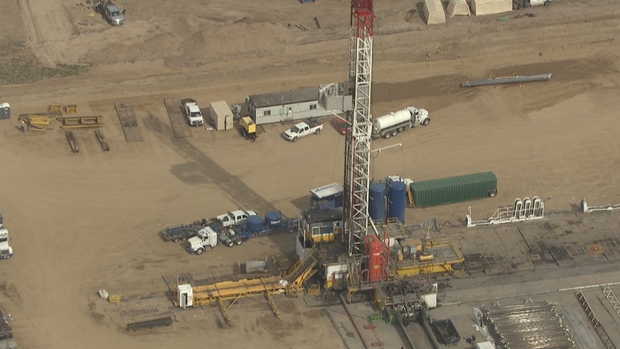Colorado Supreme Court Asked To Reconsider Ruling In Oil-Gas Case
DENVER (AP) — The Colorado Supreme Court was asked Thursday to reconsider its decision in an oil and gas lawsuit filed by Hispanic and Native American plaintiffs because a disciplinary panel found that a lower court judge who had a role in the case used a racial slur.
The request asks the court to revisit its Jan. 14 ruling against the plaintiffs, who wanted oil and gas regulators to make health and environmental protection their top priority in setting rules for the industry.
The Supreme Court ruled that state law does not require regulators to do that.
In their new filing, the plaintiffs said the Supreme Court relied in part on an opinion written by Colorado Court of Appeals Judge Laurie Booras, who resigned this month after a disciplinary panel recommended she be removed from the court.
The panel said Booras had written an email using racial slurs and demeaning nicknames for a Native American woman and a Hispanic woman.
The Hispanic woman was a fellow Court of Appeals judge.
The panel said Booras' language "creates a double-barreled appearance of impropriety" and undermined public trust in her impartiality.
The plaintiffs say Booras' comments reflect "racism, bias and a lack of impartiality."
The disciplinary panel also said Booras told a third party that she intended to write an opinion against the plaintiffs, a violation of confidentiality rules.
Booras did not immediately respond to a phone call and email seeking comment Friday.
The Colorado Oil and Gas Conservation Commission, which regulates the industry and was a defendant in the lawsuit, had no immediate comment.
The state attorney general's office declined comment.
The original lawsuit argued that state law requires the oil and gas commission to ensure energy development does not harm people's health or the environment.
The six young plaintiffs asked the commission in 2013 to require those protections before issuing any drilling permits.
The commission refused, saying the law required it to balance health and environmental concerns with other factors. The Supreme Court agreed with the commission.
By DAN ELLIOTT, Associated Press
(© Copyright 2019 The Associated Press. All Rights Reserved. This material may not be published, broadcast, rewritten or redistributed.)




